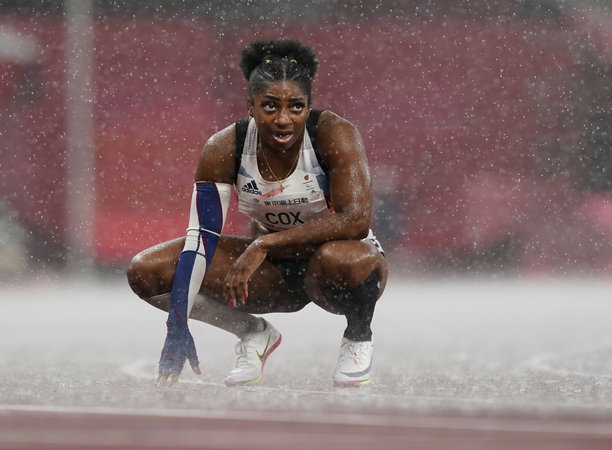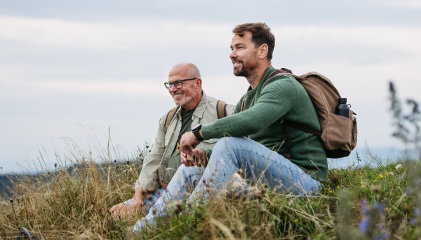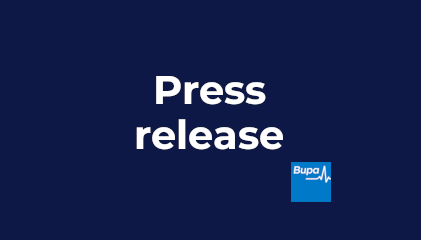Bupa and Scope release new research into less visible disabilities
The vast majority (83%) of people with less visible conditions and impairments regularly experience a lack of understanding or negative attitudes when in public, affecting their mental health.
Research from Bupa and disability equality charity Scope looked at the experiences of disabled people1. The research found that lack of understanding means the majority of those with less visible conditions and impairments have had negative experiences in the past year.
These experiences include being challenged on whether they are disabled or the nature of their disability, such as whilst travelling, shopping, or at an event (71%). Most commonly, this is when using an accessible toilet (37% in the past year), priority seating on public transport (32%) or accessible parking for Blue Badge holders (25%).
Three-quarters have also experienced insensitive comments about their disability (76%), while 68% have been told “you don’t look disabled” in the past year.
As a result, the majority of those with less visible conditions or impairments say these experiences have negatively impacted their mental health. 65% now experience heightened anxiety, and 62% say their self-esteem has taken a hit. And 22% of people with a less visible condition or impairment say bad experiences mean they are more likely to stay in rather than go out2.
Compounding this, two-thirds (66%) have also struggled to get help when needed in public at some point in the past year, meaning that those with less visible conditions or impairments often become more reluctant to use services available for disabled people. Just shy of two-thirds (64%) say they are less likely to ask for help or support when needed, and 41% have avoided using accessible facilities.
The research comes as Bupa announces it has become the Official Healthcare Partner of ParalympicsGB, in a three-year agreement. Through the partnership, both organisations will collaborate to work towards increasing inclusion in society and challenging perceptions of disability, by celebrating difference and diversity in order to help everyone achieve their goals.

Paralympic champion Kadeena Cox, who has MS, has experienced some of these issues first hand: “Even as somebody who has spent time in the public eye as a disabled person, I’ve been challenged when using disabled spaces in the past, or received negative comments because my disability hasn’t been visible when I’ve been on TV. It can really put you into a negative mental space and make the outside world seem unwelcoming and hard to navigate.
“Increasing people’s awareness and prompting conversations around disability– whether visible or not - is a key starting point in making a better world for disabled people. This is something that everyone at ParalympicsGB works towards every day, and can continue with Bupa’s support.”
Carlos Jaureguizar, CEO for Bupa Global & UK, says: “Many misconceptions still exist around disability, despite ongoing progress. The experiences of people with less visible conditions highlighted by our research are concerning, particularly considering the impact on mental health. As well as helping us become an even more inclusive organisation and better understand our customers and people, a key part of our new partnership with ParalympicsGB is encouraging a tangible shift in perceptions of disability in our society. Together, we want to inspire the next generation to believe that anything is possible, and that starts by making everyone feel confident, safe and supported when out and about.”
Mark Hodgkinson, Chief Executive at disability equality charity Scope, added:
“One in five of us is disabled, but it’s not always obvious as many people have impairments and conditions that are not visible.
“At Scope, we often hear from disabled people who experience negative attitudes, social isolation and a lack of understanding.
“Negative attitudes and behaviours hold disabled people back in all areas of life - and prevent many from socialising, looking for employment, starting education and training or using public transport.
“It doesn’t have to be like this.
“We’d encourage the public to deepen their understanding of disability equality and disabled peoples’ experiences and to become allies.”
Mental health experts at Bupa are urging anyone affected by the issues highlighted in the research to seek help, and have shared advice on how to start conversations that will encourage better inclusion in our society.
Supporting inclusion in our society
Not everyone’s disability is visible, and negative attitudes, lack of understanding, invasive or rude questions can all affect people’s mental health. But there are lots of ways that friends, family members and non-disabled people can be good allies, helping to support better inclusion and better mental health for everyone in our society.
Here’s some advice from Bupa Medical Director Dr Helen Hartley and the experts at Scope:
Be aware of different types of disability
Many people with less visible impairments and conditions told us that they have been challenged about their disability in the past year. Remember that not all impairments and conditions are visible, and some change. Just because you can’t see them doesn’t mean they’re not there.
Think about your language
Try to be sensitive about the language you use when referring to disability and disabled people. Don’t use ableist terms or use language that suggests disabled people are less capable or need pity. You can also help by calling out this language when you hear others use it.
It’s important that we have open and honest conversations, even if we feel awkward or are worried about saying the wrong thing, as this helps promote inclusion in our society. Listen to disabled people. And if you're not sure, ask!
Champion inclusion and accessibility
There’s lots we can all do to learn about how disabled and non-disabled people experience the world differently, and how to champion disabled people’s rights. Think about what adjustments you could make to help people feel more included, such as at work or within any clubs or hobbies you attend.
Spot the signs of poor mental health
People with less visible impairments and conditions told us that their mental health has been negatively impacted by their experiences. If you or someone you know is struggling, it’s important to spot the signs. Some early signs might be poor concentration, being easily distracted, worrying more, or finding it hard to make decisions. You may also notice low mood, tiredness or lack of energy, changes in appetite, sleep patterns, or increased irritability. Other signs include reduced interest in socialising or participating in hobbies or exercise.
Signpost to professional mental health support
If you, a friend or loved one are struggling, there are a number of ways to access professional support. Your GP might refer you for therapy or recommend medication or support within the community, or even social prescribing – which includes things like getting involved in volunteering or local activities. Charities like Mind and Samaritans are also available to help, and if you’re employed it’s worth looking at any employee assistance programmes or mental health support you might be able to access that way.



